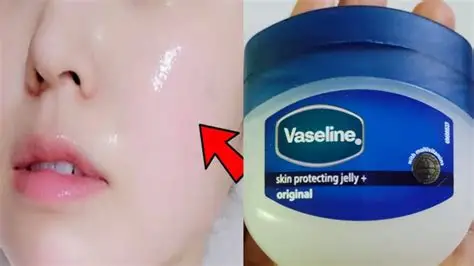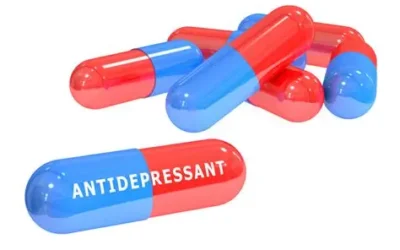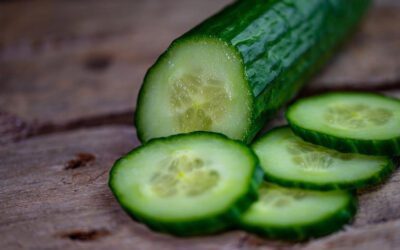The Good and Bad Sides of Using Vaseline on Your Face
Vaseline helps seal in hydration and offers several skin benefits for the face. Still, a few factors should be weighed before using it.
nanadwumor

-
Hydration & protection: Locks in moisture, soothes skin, aids minor cuts and chapped lips
-
Makeup & grooming: Removes eye makeup, tames eyebrows
-
Skin & aging: Helps rosacea/psoriasis, slows aging signs
-
Safety: Avoid on fresh sunburns, may clog acne-prone skin, thick for oily skin
RECOMMENDED ARTICLES
Experts Name 12 Common Mistakes That Can Stop You From Losing Weight. How Many Are You Culpable Of?
Tired of dieting but seeing little or no change? Most weight loss problems are not about hunger alone — they come from small daily habits that silently slow your progress. Weight loss needs...
Top 5 Common Misconceptions About Antidepressants
Antidepressants aren’t a quick fix, but understanding the truth about them can change how we see treatment and recovery. Antidepressants are misunderstood but useful in managing depression...
Health Benefits of Eating Cucumbers Regularly
Eating cucumbers can improve digestion, hydration, and overall health with very few calories. Adult women need 90 µg vitamin K daily, men need 120 µg 100 g cucumber with skin provides 24 µg...
Vaseline is a well-known brand of petroleum jelly, made from a blend of mineral oils and waxes that give it a smooth, spreadable texture. For over 140 years, it has been used to soothe burns, cuts, and irritated skin.
Its base ingredient is petroleum, the same source used in products like kerosene and gasoline, though in a purified and skin-safe form. Unlike those byproducts, petroleum jelly is gentle enough for direct application and is often chosen as a moisturizer.
Using it on the face is generally considered safe, though there are a few precautions to keep in mind.
Petroleum jelly works as an occlusive, meaning it doesn’t supply water to the skin but traps the moisture already present. By forming a barrier, it shields irritated or damaged areas and slows down water loss.
Research shows it is more effective at locking in hydration compared to oils like lanolin, olive, or mineral oil. Some blends, such as Aquaphor, combine petroleum jelly with other ingredients like lanolin and ceresin, making them both protective and moisturizing.
It can also serve as a gentle makeup remover. When wiped off properly, it helps seal in hydration overnight.


Uses and advantages of petroleum jelly include:
Some people worry that eating too much protein could harm the kidneys, heart, or bones.
But research shows that most of these concerns are not backed by strong scientific evidence.
Taking off eye makeup
Its oil-based texture breaks down nearly all types of makeup with ease. Unlike harsher removers, it’s safe for the delicate skin around the eyes and works especially well on waterproof mascara.
Seals in hydration
A thin layer of petroleum jelly helps trap existing moisture without introducing extra ingredients that could cause irritation. Applying it at night can support the skin’s natural softness and hydration levels.
Helps minor wounds recover
A thin coating of petroleum jelly creates a shield over small cuts and scrapes. This barrier supports healing while blocking germs from entering the injured area.
Protects dry lips
Applying petroleum jelly helps guard lips against harsh weather like wind or sun. Unscented and flavor-free, it’s gentle and unlikely to cause allergic reactions.
Grooms and styles eyebrows
A light layer of petroleum jelly can help smooth and hold eyebrow hairs, whether you want a defined arch or a natural, full look.
Supports skin aging care
Research shows petroleum jelly helps regulate skin peptides, which are also found in many firming creams. While it won’t reduce pores or erase wrinkles, maintaining moisture can help slow visible signs of aging.
Several common skin problems may improve with the use of petroleum jelly.
Supports skin aging care
For this inflammatory skin condition, petroleum jelly is safe and can be helpful. Its barrier effect shields red, irritated areas and may support healing.
Psoraris
Keeping skin hydrated can reduce flare-ups. Applying petroleum jelly to affected areas helps lock in moisture without causing irritation.
4️⃣ Safety Tips
Sunburn caution
Avoid using petroleum jelly on fresh sunburns, as its oil content can trap heat and worsen discomfort. It’s safe only on burns that are already healing, hours after the injury.
Acne warning
For those with breakouts, petroleum jelly can clog pores and worsen acne. Choose alternative moisturizers if your skin is prone to pimples.
Key Point
Petroleum jelly is generally safe, affordable, and effective for retaining skin hydration. People with conditions like rosacea or psoriasis can usually use it without problems.
It also helps remove makeup, shields delicate skin, and supports healing of minor cuts and bruises. While it doesn’t add moisture on its own, using it to lock in hydration can be beneficial.
FAQ
Is Vaseline good for dry skin?
Petroleum jelly is safe and effective for dry, chapped areas. Its barrier helps lock in moisture, making it ideal even for delicate skin like eyelids, where many other products aren’t suitable.
Is Vaseline good for oily skin?
Petroleum jelly can be used safely on oily skin, but its thick, greasy texture may not suit everyone. It also traps existing oils, so consider this when applying.
Is Vaseline good for oily skin?
Petroleum jelly can be used safely on oily skin, but its thick, greasy texture may not suit everyone. It also traps existing oils, so consider this when applying.
Join Our Telegram Group
Join Our WhatSapp Group
You May Also Like…
Experts Name 12 Common Mistakes That Can Stop You From Losing Weight. How Many Are You Culpable Of?
Tired of dieting but seeing little or no change? Most weight loss problems are not about hunger...
Top 5 Common Misconceptions About Antidepressants
Antidepressants aren’t a quick fix, but understanding the truth about them can change how we see...
Health Benefits of Eating Cucumbers Regularly
Eating cucumbers can improve digestion, hydration, and overall health with very few calories....




0 Comments